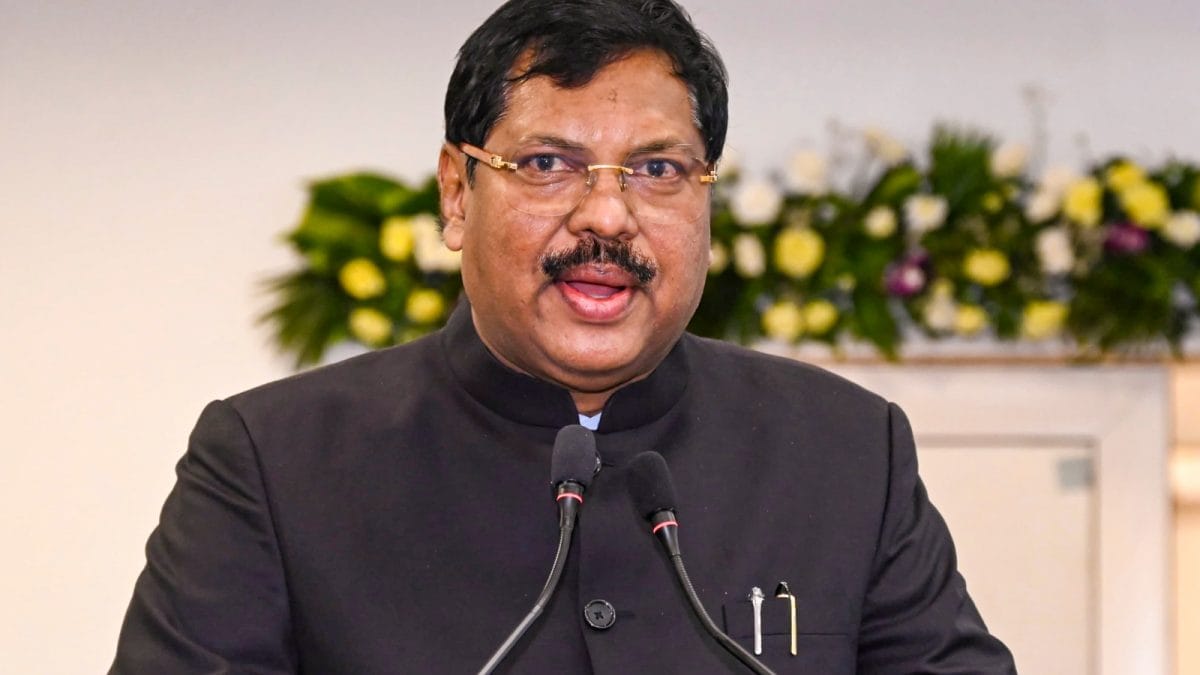Last Updated:
CJI B R Gavai highlighted human dignity as the soul of the Constitution, linking it to autonomy, equality, and justice.

Chief Justice of India Bhushan Gavai (Image: PTI file photo)
Chief Justice of India B R Gavai has said that the judiciary has always emphasised human dignity as the soul of the Constitution and consistently recognised it as a substantive right.
While addressing the eleventh Dr LM Singhvi Memorial Lecture on the topic ‘Human dignity as the soul of the Constitution: Judicial reflections in the 21st Century’, on Wednesday, the Chief Justice said that human dignity is a fundamental principle that permeates the entire Constitution. It is the guiding force behind the core values of liberty, equality, fraternity, and justice, which are all outlined in the Preamble.
Recommended Stories
Addressing a gathering of apex court and high court judges, lawyers, academicians and lawmakers in the presence of Lok Sabha Speaker Om Birla, the CJI remarked, “To live is to live with dignity… Dignity is the core which unites the fundamental rights.”
“Across a wide array of judgments in the 20th and the 21st century, the Supreme Court has consistently recognised that human dignity is both a substantive right and a normative lens through which all fundamental rights must be understood,” he said.
He added that in practice, this means that dignity serves as a guiding principle that connects rights, allowing the judiciary to develop a coherent and holistic framework for constitutional adjudication.
He stressed that dignity is not merely a moral value but a constitutional mandate underpinning Articles 14, 19, and 21. “The right to life under Article 21 is not about mere existence. It guarantees the right to live with dignity, personal autonomy, and bodily integrity,” he said.
Referring to various apex court verdicts, CJI Gavai underscored that in the context of prisoners, workers, women, or persons with disabilities, human dignity informs the understanding of autonomy, equality, and justice, ensuring that the law protects not only physical survival but also the broader conditions necessary for a life of self-respect, freedom and opportunity.
“Interpretation in dignity, the Supreme Court has ensured that the Constitution remains a living instrument, capable of responding to evolving societal challenges while remaining faithful to its foundational values,” he said.
He added that the judiciary has recognised that structural inequalities, historical injustices and systemic discrimination can undermine the dignity of entire social groups, and that protecting their dignity requires affirmative measures, safeguards and equality-oriented interventions.
“Through its jurisprudence, the court has consistently emphasised that dignity encompasses social recognition, respect and the opportunity for marginalised communities to participate fully and equally in society, extending beyond mere legal protection to address entrenched social hierarchies and exclusion,” the Chief Justice said.
Referring to the various apex court verdicts, he said that the judiciary has repeatedly affirmed that protection of autonomy is a core mechanism through which the Constitution safeguards human dignity, reinforcing the interdependence of these two fundamental principles.
CJI Gavai said that it is all due to the Indian Constitution and Dr BR Ambedkar’s vision that he could hold this august office (of CJI) and get an opportunity to serve the nation. He added that he has declined honorary doctorates offered to him and would not accept any before November 24, 2025 (the day of his superannuation from the CJI office).
CJI Gavai further said another important aspect of the discourse on human dignity is that it is intrinsically connected to an individual’s autonomy and capacity to make decisions about their own life.
“It encompasses the freedom to exercise choice, personal agency and self-determination. The courts have consistently recognised that human dignity and personal autonomy are mutually reinforcing. A person cannot truly live with dignity if they are denied the ability to make choices regarding their body, actions, or life circumstances,” he said.
CJI Gavai said the judicial recognition of the principle of human dignity in India began to crystallise in the late 1970s, largely in response to the widespread reports of inhuman treatment of prisoners in jails across the country.
About the Author

Ananya Bhatnagar, Correspondent at CNN-News18, reports on various legal issues and cases in lower courts and the Delhi High Court. He has covered the hanging of the Nirbhaya gang-rape convicts, JNU violence, De…Read More
Ananya Bhatnagar, Correspondent at CNN-News18, reports on various legal issues and cases in lower courts and the Delhi High Court. He has covered the hanging of the Nirbhaya gang-rape convicts, JNU violence, De… Read More
September 04, 2025, 23:19 IST
Loading comments…
Read More




